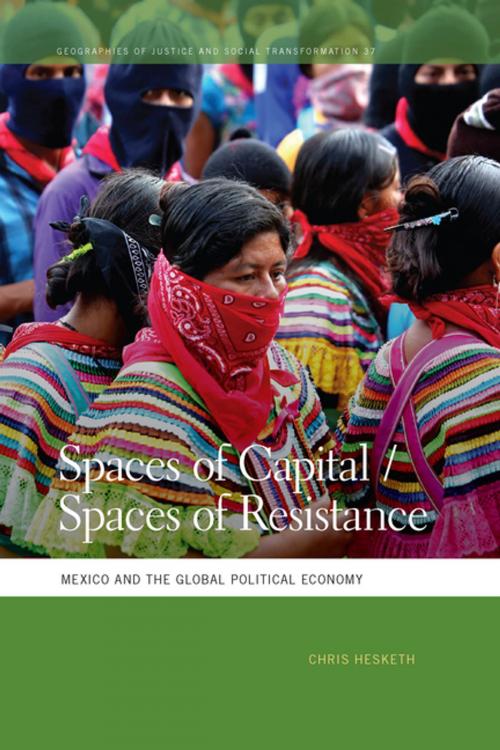Spaces of Capital/Spaces of Resistance
Mexico and the Global Political Economy
Nonfiction, Social & Cultural Studies, Social Science, Human Geography, History, Americas, Mexico, Political Science| Author: | Chris Hesketh, Nik Heynen, Mathew Coleman, Associate Professor Sapana Doshi | ISBN: | 9780820351759 |
| Publisher: | University of Georgia Press | Publication: | December 15, 2017 |
| Imprint: | University of Georgia Press | Language: | English |
| Author: | Chris Hesketh, Nik Heynen, Mathew Coleman, Associate Professor Sapana Doshi |
| ISBN: | 9780820351759 |
| Publisher: | University of Georgia Press |
| Publication: | December 15, 2017 |
| Imprint: | University of Georgia Press |
| Language: | English |
Based on original fieldwork in Chiapas and Oaxaca, Mexico, this book offers a bridge between geography and historical sociology. Chris Hesketh examines the production of space within the global political economy. Drawing on multiple disciplines, Hesketh’s discussion of state formation in Mexico takes us beyond the national level to explore the interplay between global, regional, national, and sub-national articulations of power. These are linked through the novel deployment of Antonio Gramsci’s concept of passive revolution, understood as the state-led institution or expansion of capitalism that prevents the meaningful participation of the subaltern classes.
Furthermore, the author brings attention to the conflicts involved in the production of space, placing particular emphasis on indigenous communities and movements and their creation of counterspaces of resistance. Hesketh argues that indigenous movements are now the leading social force of popular mobilization in Latin America. The author reveals how the wider global context of uneven and combined development frames these specific indigenous struggles, and he explores the scales at which they must now seek to articulate themselves.
Based on original fieldwork in Chiapas and Oaxaca, Mexico, this book offers a bridge between geography and historical sociology. Chris Hesketh examines the production of space within the global political economy. Drawing on multiple disciplines, Hesketh’s discussion of state formation in Mexico takes us beyond the national level to explore the interplay between global, regional, national, and sub-national articulations of power. These are linked through the novel deployment of Antonio Gramsci’s concept of passive revolution, understood as the state-led institution or expansion of capitalism that prevents the meaningful participation of the subaltern classes.
Furthermore, the author brings attention to the conflicts involved in the production of space, placing particular emphasis on indigenous communities and movements and their creation of counterspaces of resistance. Hesketh argues that indigenous movements are now the leading social force of popular mobilization in Latin America. The author reveals how the wider global context of uneven and combined development frames these specific indigenous struggles, and he explores the scales at which they must now seek to articulate themselves.















